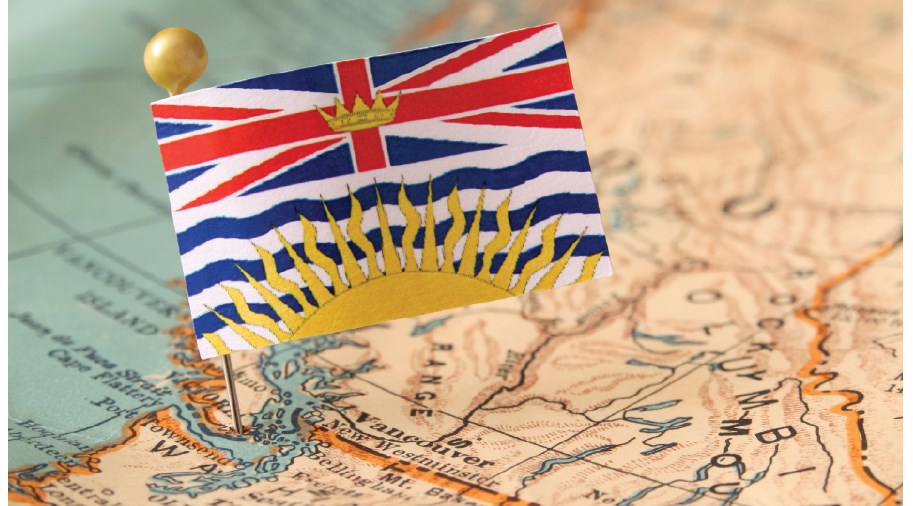For the second straight year, the celebrations to observe B.C. Day were remarkably subdued because of the COVID-19 pandemic.
We are very slowly getting used to the opportunity to travel again and to reconnect with areas of British Columbia that were impossible to reach just a few weeks ago.
The past 12 months have brought immense challenges of many types. We went through the hottest days on record, we continue to see large areas of the province devastated by wildfires, and there is uncertainty about the type of economic recovery that will arrive after COVID-19 is curtailed. We are also in the middle of a federal election campaign, where British Columbians have an opportunity to decide who to send to Ottawa to represent their interests.
For the past four years, Research Co. and Glacier Media have studied the sentiments of British Columbians on the province and its future. We have consistently seen a high level of rapport with our neighbours to the south, and a large number of residents who deem themselves Canadians first, and then British Columbians.
Some of the questions that we track every year did not go through a massive change since 2020. This year, 84% of British Columbians say they are very proud of the province that they live in, a proportion that reaches 90% in the Fraser Valley.
A majority of British Columbians continue to feel unique among their fellow Canadians, with 57% thinking that their views are different from the rest of the country. However, this result is seven points lower than it was last year.
Our collective assessment of Cascadia remains overwhelmingly positive. Almost three in five British Columbians (59%, up one point) believe they have more in common with the people of Seattle and Portland than with those in Toronto or Montreal.
What is particularly striking about this finding is that the needle did not move in a year that made it impossible for most British Columbians to venture into cities in Washington state or Oregon on account of the COVID-19 pandemic. Even if we cannot join them in person, we continue to look at the residents of these American states as closer to our values than our compatriots to the east.
By the midway point of 2020, we identified a certain smugness in British Columbia over the way the pandemic was being handled. Our early success made the leadership of other jurisdictions seem bleak and disjointed. It even led more than a quarter of us (27%) to believe that the province would be better off as its own country. This month, only 18% of residents feel the same way, placing British Columbia well behind Quebec and Alberta on separatist leanings.
One fact that makes us different from Quebecers and Albertans is that, by an almost three-to-one margin, residents of the province are more likely to think of themselves primarily as Canadians (61%) than British Columbians (22%). One thing to ponder for the future is the slight fluctuation on age groups. People aged 55 and over are more likely to say they are Canadians first (65%) than those aged 35 to 54 (60%) and those aged 18 to 34 (58%).
In southern B.C., three in 10 residents (30%) currently feel more British Columbian than Canadian and are joined by 27% of their counterparts in northern B.C. The proportion falls markedly in Metro Vancouver (22%), Vancouver Island (19%) and the Fraser Valley (17%).
Our tracking questions on the best and worst premiers that the province has had since 1986 also show some movement. Incumbent John Horgan jumped seven points in a year to reach 29% on the list of the best recent heads of government. The next four challengers are in single digits: Christy Clark (9%, unchanged), Mike Harcourt (6%, down one point) Gordon Campbell (also 6%, down one point) and Bill Vander Zalm (5%, down nine points).
When asked who the worst recent premier has been, Christy Clark is in first place with 21% (up six points), followed by Campbell (11%, unchanged), Glen Clark (9%, up one point) and Horgan (8%, up three points).
British Columbians may be content with our place in Canada and proud of what the province represents. Still, the inability of various levels of government to adequately deal with the housing crisis is starting to affect our views on the future.
We found that 75% of British Columbians believe they will stay in the province for the rest of their lives. At first glance, this appears to be a wonderful endorsement of life in the province. However, only 61% of residents aged 18 to 34 express confidence in never abandoning British Columbia. This means that practically two in five of the province’s youngest adults are no longer looking at British Columbia as a place they can grow old in. •
Mario Canseco is president of Research Co.
Results are based on an online study conducted from August 7 to August 9 among 800 adults in British Columbia. The data has been statistically weighted according to Canadian census figures for age, gender and region in British Columbia. The margin of error, which measures sample variability, is plus or minus 3.5 percentage points, 19 times out of 20.



